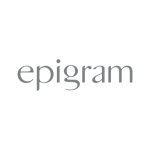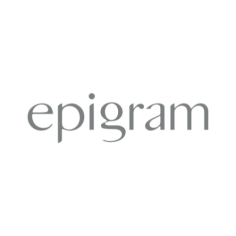Our journey with the Mindful Business Charter at Epigram
Epigram are proud members of the Mindful Business Charter (MBC), an organisation founded by law firms, including one of our own clients, to identify and reduce unnecessary stress in the workplace, and promote better mental health as a result.
Working in a fast paced environment where deadlines are often urgent can indeed be stressful, so we have been working with the MBC framework to analyse our own processes and put measures in place to streamline how we work. This includes providing less wordy briefing forms to clients, ensuring meeting times are accurate and don’t overrun, and tweaking our handover techniques to only include key information.
Where did we start?
We chose to focus initially on the “Communications and Smart Meetings” pillar of the charter, as we believed it would have the biggest impact on our team.
Challenge
We faced several challenges in maintaining effective communication and meeting practices:
- Time management: Our meetings were frequent, often with unclear agendas.
- Communication overload: We had become overly reliant on emails and instant messaging, which led to information overload.
- Collaboration issues: The diverse communication preferences within our team made it difficult to ensure that everyone felt heard and included.
Solution
To address these challenges, we took a strategic approach in implementing the MBC guidelines, focusing on improving our communication and meeting practices:
- Smart meeting protocols: We introduced an agenda template, emphasised the importance of punctuality, and set clear objectives for each meeting. This helped us run more efficient meetings that respected everyone’s time and allowed all participants to contribute, regardless of their location.
- Communication tools: We developed a communication diagram to guide our team on the most appropriate methods of communication for different scenarios. Additionally, we launched an internal Wellness Hub that offers resources related to MBC and overall physical and mental wellbeing.
- Client and team engagement: We established a new meeting protocol that included AI led note-taking and mindful scheduling. We also created a best practice guide for our clients, helping them manage expectations and streamline their communication with us.
- Wellness initiatives: To support our team’s well-being, we introduced monthly wellness sessions and provided mental health first aid training to several team members.
Results
The implementation of these strategies led to significant improvements:
- Increased efficiency: Our meetings became more focused and productive, with clear outcomes and actionable plans.
- Enhanced collaboration: We found it easier to communicate effectively, which reduced stress and improved overall morale within the team.
- Better client relationships: Our clients appreciated the structured approach and clear communication, which strengthened our partnerships.
- Workplace wellness: As a result of our involvement with the MBC, a number of our team have also attended training to become mental health first aiders, and we have created an internal wellness hub to house key information and resources about reducing stress.
Next Steps
Building on the success of these initiatives, we’re now planning to focus on the “Mindful Delegation” pillar of the MBC. We’re committed to continuing to refine our practices to support both our team and our clients in achieving better outcomes.
Our commitment to the Mindful Business Charter is a testament to our dedication to creating a healthier, more productive work environment, benefiting both our team and our clients.
For more information about the MBC, or to join the charter, visit their website. To learn more about Epigram and our culture, take a look at our website.



